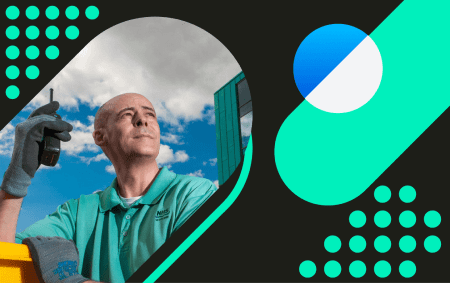
NHS Scotland staff survey identifies most important areas for post-pandemic innovation
Big data and analytics, digital apps, and remote monitoring rank among the most important areas for future healthcare innovation, say NHS Scotland staff in newly published survey results
Responding to an independent poll commissioned by NHS partner InnoScot Health, the healthcare workers surveyed believe these represent key focus areas for improving the health service.
Scotland’s Chief Scientist for Health, Professor Dame Anna Dominiczak says the response shows that staff are “keen to help identify, develop, and pioneer their integration.”
A total of 88% rank big data and analytics — using gathered data to uncover hidden patterns and correlations for better decision-making and greater efficiency in healthcare delivery — as one of the most important areas for NHS Scotland innovation in the future.
Also ranking 88%, digital apps — delivering information for patients, care providers and researchers, real-time patient monitoring, collecting community and clinical health data, and more — is a further prime focus for the NHS Scotland workforce.
Remote monitoring — a method of healthcare delivery that uses the latest advances in information technology to gather patient data outside of traditional healthcare settings — sits close behind at 86%.
Commanding the same percentage in the survey is the advancement of now well-established telemedicine — technology enabling video or phone appointments between a patient and their healthcare practitioner.
The results, published to coincide with World Creativity and Innovation Day (Friday 21), provide a snapshot of health and social care staff views. They were gathered via online questionnaire and the data collected between 3 October and 4 November 2022 with a total of 602 eligible responses received.
The survey discovered that NHS workers with 11 to 20 years’ experience are most likely (93%) to believe that remote monitoring should be a focus for the future, the survey found.
Furthermore, those in the Health Science Services Staff Group category are most likely (89%) to believe that ‘artificial intelligence’ – the application of machine learning (ML) algorithms and other cognitive technologies in medical settings – should be an important focus for the future.
The same survey previously revealed that nine out of 10 survey respondents believe innovation must be at the heart of improving NHS Scotland services and helping to tackle pandemic backlogs.
Moreover, almost two thirds (64%) of NHS staff consider themselves to be a healthcare innovator and have ideas to improve the NHS, currently facing one of its most difficult periods. One in six respondents specifically believe this is the case “to a great extent.”
Professor Dame Anna Dominiczak said: “Coinciding with this Friday’s World Creativity and Innovation Day — the theme of which is ‘step out and innovate’ — it is positive indeed to note that NHS staff are very much aware of the latest innovation possibilities for healthcare improvement and, not only that, they are extremely keen to help identify, develop, and pioneer their integration.
“This survey shows that there is an undoubted appetite for innovation-led change — from the ever more detailed picture that ethical big data and analytics can offer, to the reassurance that digital apps and remote monitoring can provide to both patients and NHS staff.
“The NHS Scotland workforce evidently agrees that working smarter — using innovation to achieve more with less — is an important way to reduce waiting lists and improve patient outcomes.
“Staff also believe that the more comprehensive picture of a patient’s health which they can build up, the better. They recognise that this could offer a gateway to a more proactive approach to healthcare, including the ability to spot and predict potential issues early and treat them, in turn saving time and precious NHS resources.
“In other words, the message is clear — when a leading culture of innovation and deep workforce insight are brought together, they become powerful facilitators for an improved NHS Scotland.”
Executive Chair of InnoScot Health, Graham Watson said: “Our survey is a timely snapshot of where NHS Scotland currently stands during one of its most difficult periods.
“It provides ample evidence of an innovation-ready workforce that wants to be part of improving services for both patients and staff, including the opportunity to use their own insight and ideas to drive forward change.
“The potential is vast, whether it is reducing current challenges, empowering patients to manage their own healthcare journey, or gaining important insights for new possibilities in diagnoses.”

Got an idea?
Every innovation starts with an idea. Ideas from people like you. People working within health and social care who can spot opportunities, solve problems, and identify ways to make things better.
If you have an innovative healthcare idea, then InnoScot Health would like to hear from you. You can start by booking a consultation or submitting your idea.
Chat